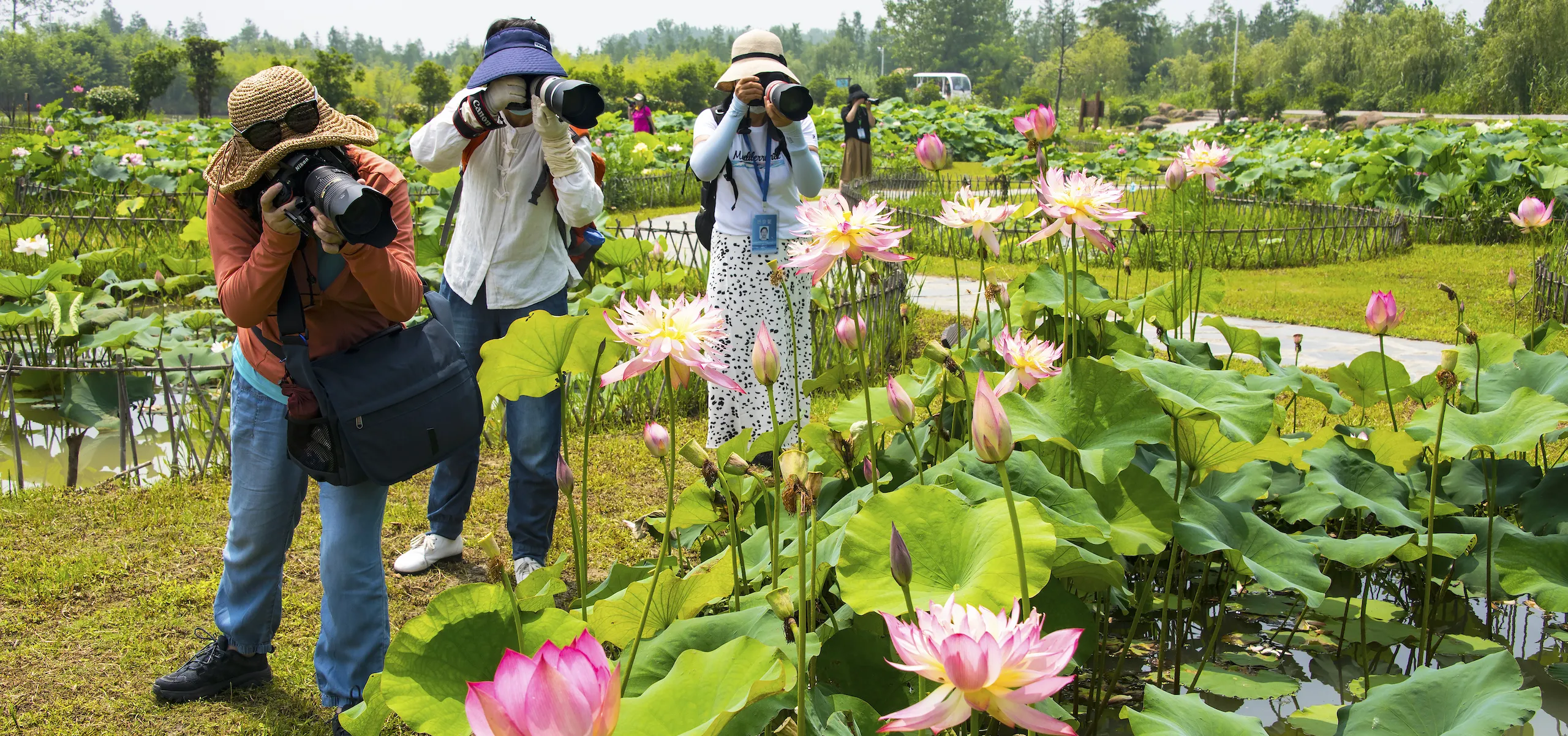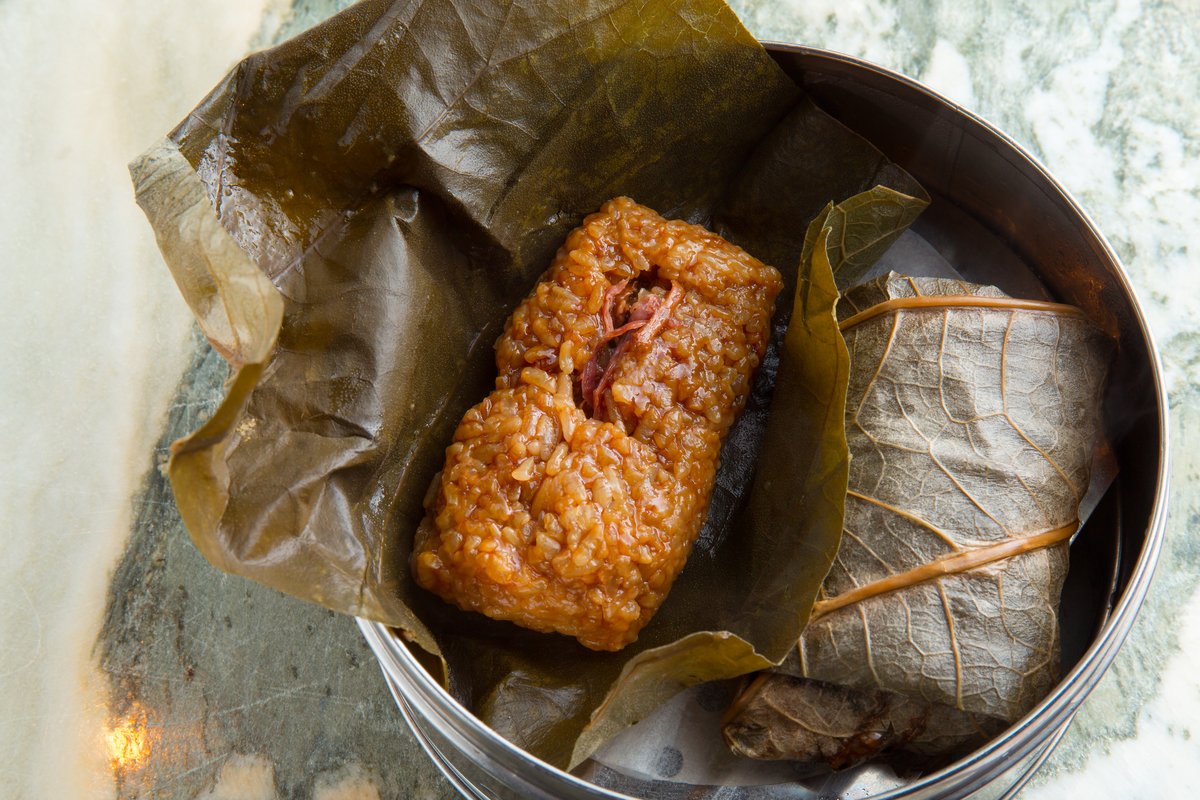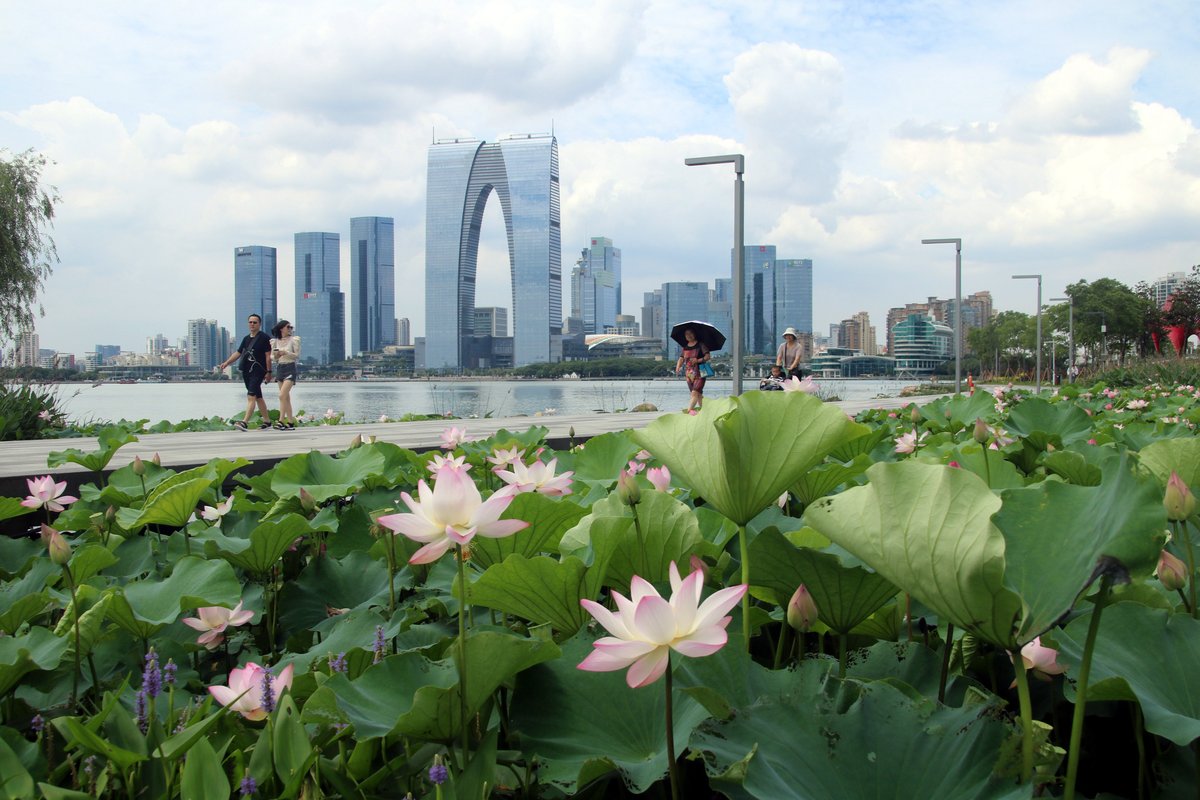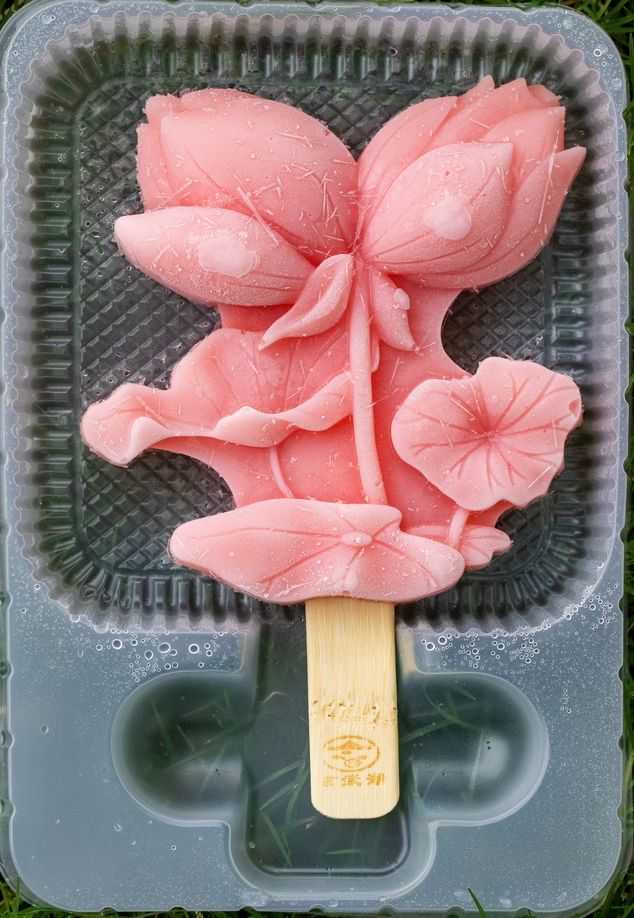In Jiangsu province, summer is the season for enjoying lotuses
With its gentle climate, dense water network, and nutritious soil, Jiangsu province has been the center of China’s lotus cultivation for over a thousand years. Each summer, locals and tourists attend festivals in Jiangsu to observe the stunning colors of the lotus flowers, row boats among the saturated lotus ponds, and enjoy succulent cuisine featuring lotus leaves, roots, and seeds. When the steamy summer weather gives way to thunderstorms, one could even take one of the huge lotus leaves as an “umbrella.”
In Nanjing, numerous streets and bridges are named after lotuses, while images of the flowers are often painted on homes as a symbol of harmony. In Chinese, the character for lotus, 荷 (hé) has the same pronunciation as the word for peace or harmony, 和 (hé).
From June onwards, when the lotus flowers bloom and lotus ponds are at their most spectacular, there are several lotus-themed festivals around Jiangsu. At Nanjing’s Mochou lake, for example, a lotus arts and culture festival runs from June to September, with lakeside camping, music concerts, and markets featuring lotus-based souvenirs.
At Xuanwu Lake, also in Nanjing, locals celebrate a tale about the birth of the popular “rice wrapped in lotus leaf (荷叶饭)” dish: In the year 561, Emperor Wu of Chen led his troops in a defensive battle against a force from the Northern Qi at Jingkou (today’s Zhenjiang in Jiangsu province). As his forces prepared to fight to death against the superior Northern Qi forces, the people of Jingkou brought gifts of rice and duck wrapped in lotus leaves. The legend has it that this fuel gave Emperor Wu and his army the energy they needed to finally defeat the invaders.
According to traditional Chinese medicine theories, eating lotus can reduce internal heat and detoxify the body. Besides lotus leaf-wrapped rice, a number of other tasty summer dishes are Jiangsu favorites, like lotus leaf rice porridge, lotus root and pork-rib soup, and roast chicken in lotus leaves. The meats in these delicacies absorb the fresh fragrance of the lotus for a delightfully subtle flavor.
Besides lotus-inspired hot dishes, locals can also enjoy ice cream shaped like “two lotus flowers on one stalk (并蒂莲),” considered a symbol of loving couples. These plants with twin flowers are from a special species of lotus and are relatively rare.
In Suzhou, locals take to ponds and lakes to pick lotus seeds during a harvesting festival from June to July. Since ancient times, young women have taken to rowing boats to pick the seeds in the summer months. For ancient artists, graceful women drifting amongst the pink lotus flowers and green leaves while dressed in flowing dresses were a favorite scene. The Tang dynasty (618 – 907) poet Huang Fusong (皇甫松) wrote in his poem “Picking Lotus Seeds Number Two (采莲子二首)”: “The fragrance of lotus spreads across the lake. The playful young girl is late on her lotus picking schedule...She greedily watches the young men, letting the boat drift around. Out of the blue, she throws lotus seeds at the neighboring boat, but become so embarrassed when she realizes people from afar was watching.”
During the lotus-picking festival in Suzhou, visitors can also listen to traditional pingtan, a music and narrative performance popular in the area, perhaps while sipping on lotus tea.
On the 24th day of the sixth lunar month, locals also celebrate the birthday of the mythical lotus fairy. According to tradition, the fairy emerges as the lotus flowers begin to bloom, looking after the plants as they blossom until they wither away. To celebrate the fairy’s birthday, people often float lotus-shaped lanterns on the lotus ponds to wish for her blessings.
Meanwhile, Jinhu county of Huaian city is home to the world’s largest lotus plantation, possibly due to the area’s unique tidal-flat that provides nutrients-rich mud perfect for lotus plants to grow. From June to October, visitors can watch open air films, appreciate dance performances on boats, and taste the local specialty of organic lotus-bred crayfish. Raised in the same lakes as the lotus plants, the crayfish are supposedly extra tender and fragrant.
Night markets at the festival thrive during the summer months. So why not grab some fresh lotus crayfish stir-fried with garlic and spices, a big glass of cold beer, and enjoy a perfect night amidst cool lotus ponds.















